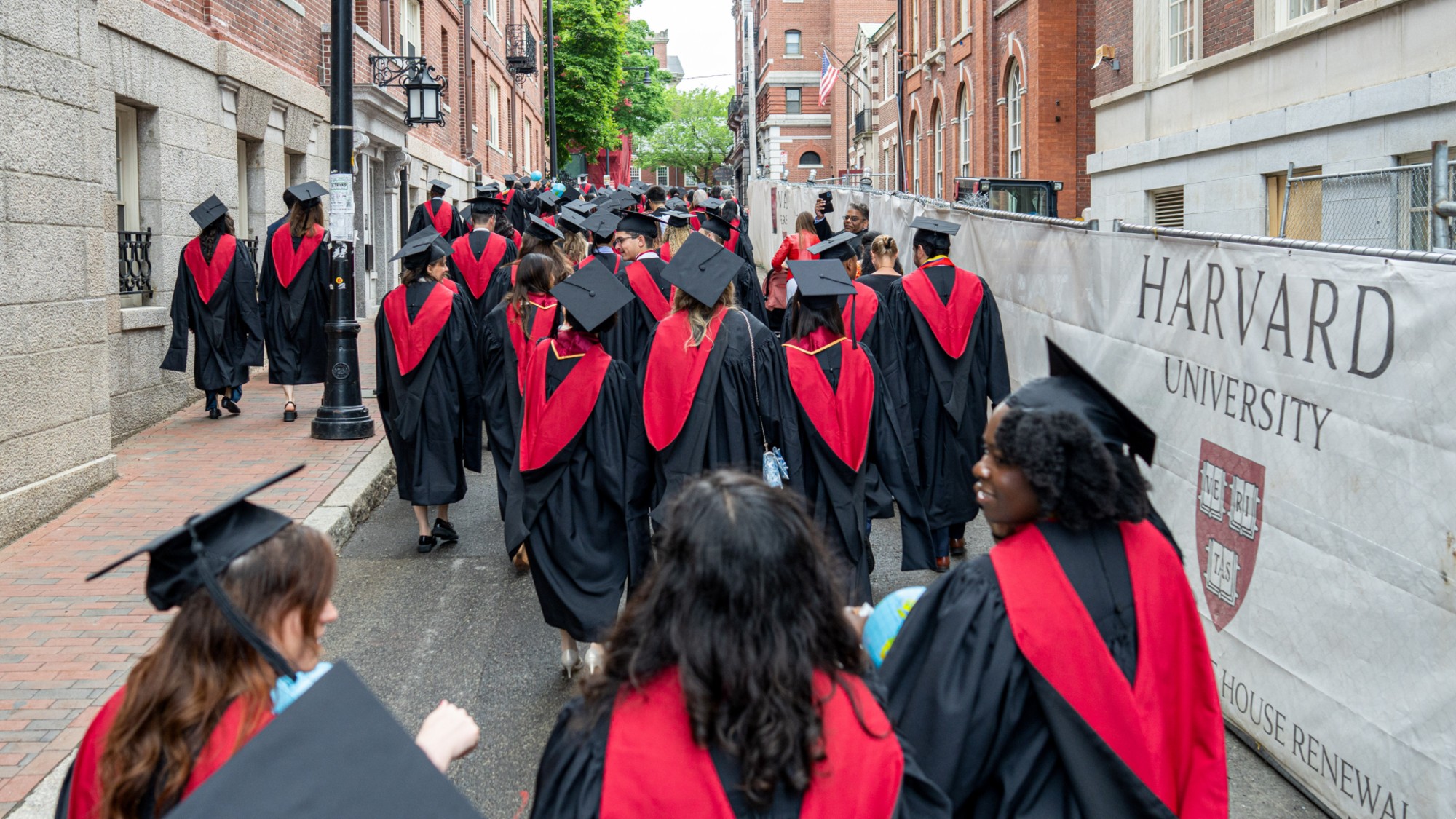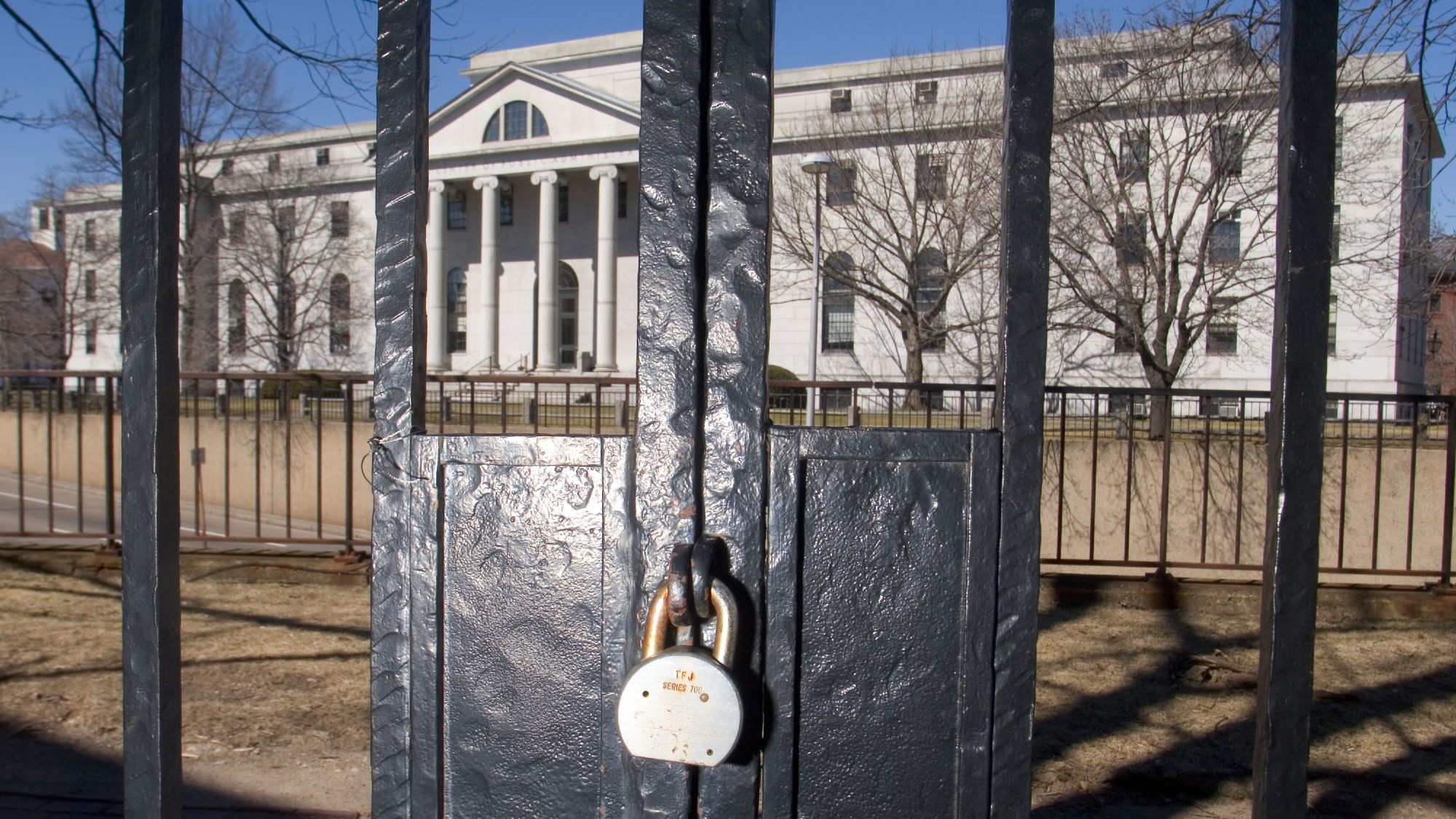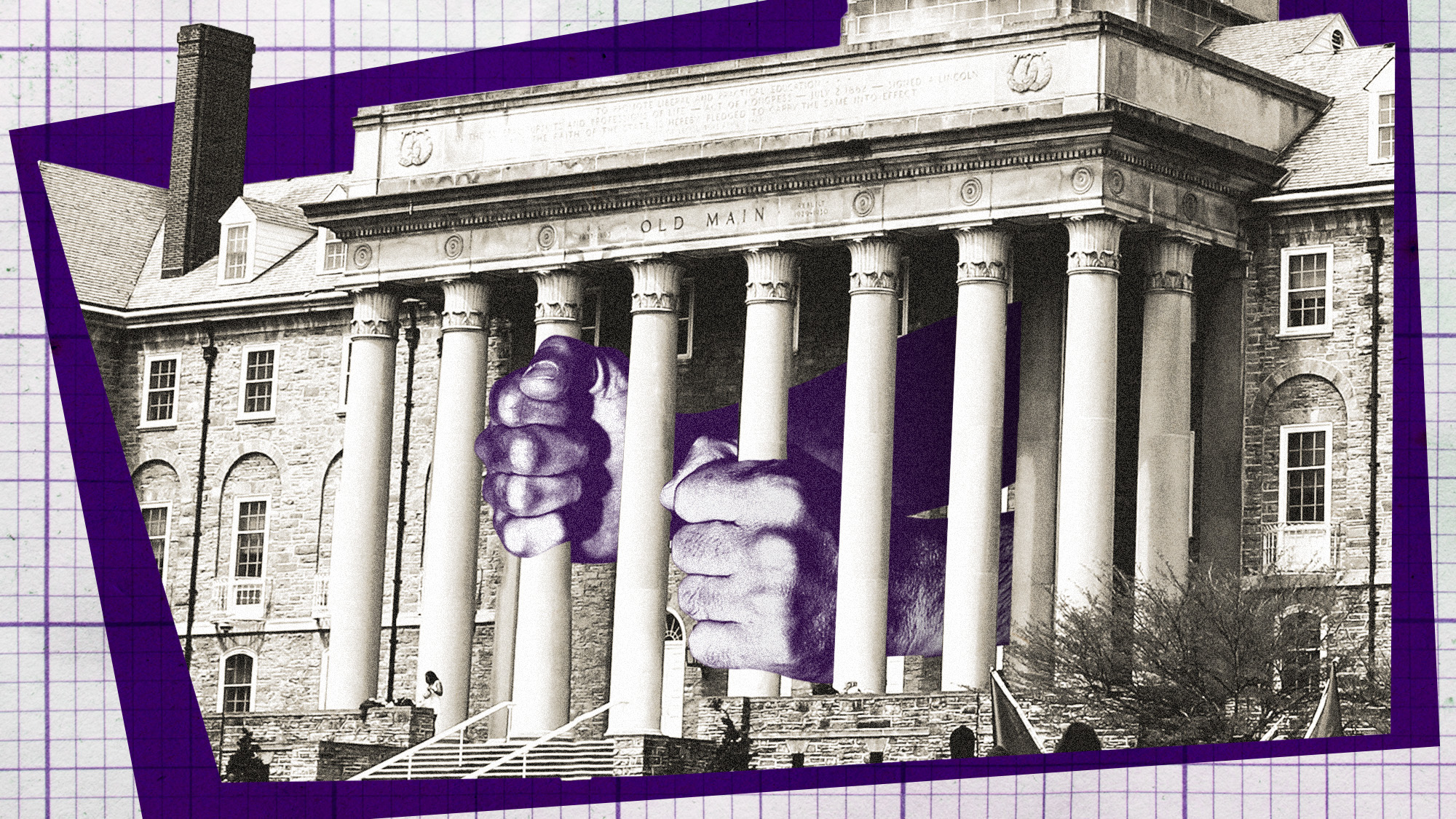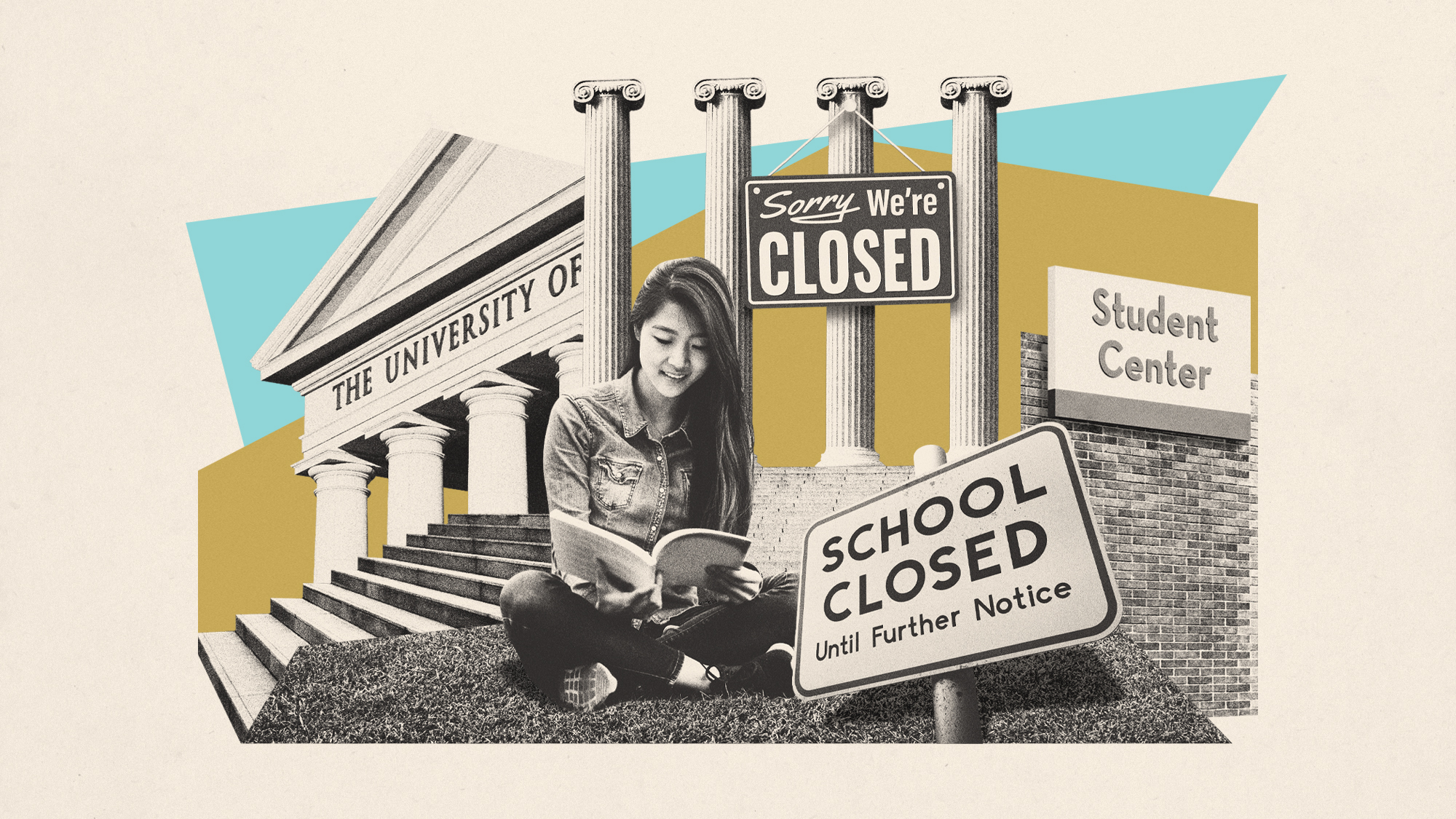Is this the worst summer ever to graduate?
AI, higher employment costs, improved workers' rights and older staff sticking around for longer mean entry-level jobs are drying up

A free daily email with the biggest news stories of the day – and the best features from TheWeek.com
You are now subscribed
Your newsletter sign-up was successful
Each generation thinks they have it harder than the one that went before. But as the latest crop of university students prepare to graduate, the class of 2025 may well be right.
"Yes, we've heard it all before", said The Telegraph's employment editor Lucy Burton, who entered the job market in the aftermath of the financial crisis, "but this time, it really could be the worst summer ever to graduate".
The impact of AI
The impact of artificial intelligence (AI) on the wider job market is already undeniable.
The Week
Escape your echo chamber. Get the facts behind the news, plus analysis from multiple perspectives.

Sign up for The Week's Free Newsletters
From our morning news briefing to a weekly Good News Newsletter, get the best of The Week delivered directly to your inbox.
From our morning news briefing to a weekly Good News Newsletter, get the best of The Week delivered directly to your inbox.
Last year, the International Monetary Fund said it believed AI would impact nearly 40% of all jobs, while analysis by the Tony Blair Institute found technology could displace up to 275,000 private sector roles a year in the UK alone, rising to up to three million by 2050.
A commonly held belief about the "forthcoming AI jobs-pocalypse" is that it will disproportionately affect recent graduates, said The Economist. "The explanation runs that they typically do entry-level jobs in knowledge-intensive industries – such as paralegal work or making slides in a management consultancy. It is exactly this sort of task that AI can do well".
A recent survey of executives on LinkedIn appears to bear this out. More than 60% said AI will eventually take on some of the tasks currently assigned to entry-level employees, especially more mundane and manual roles.
In all, UK-entry level jobs are down by nearly a third since the release of ChatGPT three years ago, according to research by job search site Adzuna.
A free daily email with the biggest news stories of the day – and the best features from TheWeek.com
Fewer jobs available
"Not only is there the rise of AI to contend with, but the list of other problems appears endless", said Burton. In the UK, specifically, these range from "higher employment costs, a workers' rights revolution and a whole cohort of older staff who just aren't budging".
Recent increases to employer national insurance contributions (NICs) and the national minimum wage have forced many employers to cut entry-level opportunities. At the same time, new workers' rights legislation will introduce the right to unfair dismissal claims from day one, reducing the risk appetite of employers to take a punt on a younger, inexperienced hire.
This comes on top of an already competitive jobs market. Citing data from the Institute of Student Employers the BBC said there were an average of 140 applications received for each available UK graduate job in 2024. This was the highest number of applications for 30 years – and a more than 50% rise from 2023.
This suggests that young people are "bearing the brunt of a protracted slowdown in the UK labour market, as employers hang on to existing staff but hold off hiring", said the Financial Times.
Devalue degrees
"The worry", said the FT, "is that a cyclical slowdown in the wider UK labour market could be masking a more lasting decline in the value of a degree."
Some graduates are even being rejected for jobs in supermarkets or warehouses, "not because they're unqualified, but because they’re seen as overqualified, too risky or surplus to requirements", said The Independent.
"In terms of the UK economy, this isn't just a problem of job shortages. It signals a deeper breakdown in the social contract – the long-held promise that education leads to opportunity. And it exposes how the connection between learning and labour is coming undone".
-
 How the FCC’s ‘equal time’ rule works
How the FCC’s ‘equal time’ rule worksIn the Spotlight The law is at the heart of the Colbert-CBS conflict
-
 What is the endgame in the DHS shutdown?
What is the endgame in the DHS shutdown?Today’s Big Question Democrats want to rein in ICE’s immigration crackdown
-
 ‘Poor time management isn’t just an inconvenience’
‘Poor time management isn’t just an inconvenience’Instant Opinion Opinion, comment and editorials of the day
-
 American universities are losing ground to their foreign counterparts
American universities are losing ground to their foreign counterpartsThe Explainer While Harvard is still near the top, other colleges have slipped
-
 Where will international students go if not the US?
Where will international students go if not the US?Talking Points China, Canada and the UK are ready to educate the world
-
 Colleges are canceling affinity graduations amid DEI attacks but students are pressing on
Colleges are canceling affinity graduations amid DEI attacks but students are pressing onIn the Spotlight The commencement at Harvard University was in the news, but other colleges are also taking action
-
 Can Trump ban overseas students from US universities?
Can Trump ban overseas students from US universities?Today's Big Question President's decision to revoke Harvard's access to database for admitting international students 'drastically escalates' the dispute
-
 America's academic brain drain has begun
America's academic brain drain has begunIN THE SPOTLIGHT As the Trump administration targets universities and teachers, educators are eying greener academic pastures elsewhere — and other nations are starting to take notice
-
 Is academic freedom in peril?
Is academic freedom in peril?Today's Big Question Faculty punishments are on the rise
-
 Anti-Israel protests impact a Jewish-rooted university
Anti-Israel protests impact a Jewish-rooted universityThe Explainer The president of Brandeis University resigned as a result of multiple factors, including his handling of recent protests
-
 Why are so many colleges closing?
Why are so many colleges closing?Today's Big Question 'Enrollment cliffs' and higher tuition both play a role